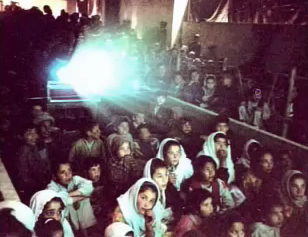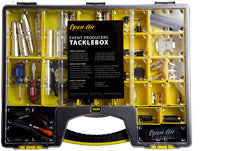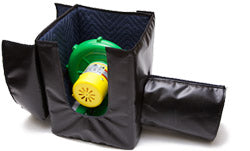 In February of 2002, FilmAid traveled to Kabul, Afghanistan on a trip to assess the viability of running programs in Afghanistan. While there, FilmAid screened the films the WIZARD OF OZ and CHILDREN OF HEAVEN to 450 street children in Kabul.
Below, is an essay written by a FilmAid volunteer Nina Teicholz on the assessment trip.
In February of 2002, FilmAid traveled to Kabul, Afghanistan on a trip to assess the viability of running programs in Afghanistan. While there, FilmAid screened the films the WIZARD OF OZ and CHILDREN OF HEAVEN to 450 street children in Kabul.
Below, is an essay written by a FilmAid volunteer Nina Teicholz on the assessment trip.
One hundred Afghan children squeeze themselves inside a small classroom outside Kabul; the lights dim, and a twister in Kansas fills the screen. It's The Wizard of Oz, and for these children, ages six to 14, it is the first film they've ever seen. Before the screening, their teacher, a spirited woman in a red head shawl, has patiently explained the whole Oz story to them, so they're able to follow the plot. Although the film is in English, the kids are utterly transfixed: their mouths hang open and they gasp with palpable shock when the film blooms from black and white into color. Out of respect for the local sense of propriety, a screening committee deemed the munchkins in frilly pink tutus inappropriate, and they were correspondingly fast-forwarded to avoid showing too much skin.
Not only have these children never seen movies, they have neither TV nor radio. Under the Taliban decree, they were never allowed even to see a photo of a woman--or a man pictured from the head down. All song and dance were outlawed. When Caroline Baron, FilmAid founder, asks the children to sing a song for her, she is met with blank stares. The children don't know any songs.
In late February 2002, three FilmAid volunteers flew to Kabul to see if they could set up a program for people in Afghan camps (called the internally displaced ), as well as refugees in Pakistani camps. Caroline Baron, a film producer best known for Monsoon Wedding, was accompanied by Michael Mailer, also a film producer, and Ed Beason, a logistician/filmmaker. Helping them on the ground in Kabul was Peter Bussian, information officer for the IRC, the New York-based group under whose auspices FilmAid has been working.
In only a week, they had much to accomplish: to meet with nongovernmental organizations (NGOs) who might be interested in becoming local partners with FilmAid, to assess whether movies could be safely shown in a devoutly Muslim country that had been at war for almost 25 years, to do two test screenings with children in Kabul and to check out the local infrastructure--including the size of the potholes in roads that FilmAid trucks would need to drive. Movie screens bolted atop flatbed trucks are FilmAid's novel solution to showing pictures in refugee camps--mainly outdoors, under the stars.
Meeting NGO leaders turned out to be the easy part of the trip: everyone, it seemed, was starved for resources and entertainment. FilmAid spoke with local groups ASCHIANA (working with orphans and street children), SIEAL (a school-oriented group) and ACBAR (an umbrella organization), as well as several U.N. agencies, including UNICEF. All expressed a willingness to participate and help. FilmAid was also lucky enough to meet with Sima Samar, Afghan Minister of Women's Affairs and something of an international celebrity, who said she was very excited about the project but not the romance and love movies, she urged, we need educational films, because the Afghans are so deprived.
Ensuring the safety of moviegoers was harder to assess. In Kabul, peacekeepers are everywhere, and although the city appears in parts to be one big bomb crater, it generally feels safe. Even miles outside the city, Baron, Mailer and Beason stumbled upon some British special forces hiding in the turrets of an abandoned palace. They revealed themselves shortly after a shattering earthquake, measuring 7.2 on the Richter scale, shook the countryside. The soldiers leaned out from their tower and yelled down to Baron, asking her if she knew anything about earthquakes and what did she think--should they climb down from their turret? I told them, yes, in my experience, there are usually aftershocks, said Baron, and the English special forces took her advice.
Haplessness about earthquakes aside, foreign peacekeepers appear to make Kabul a fairly secure place for FilmAid. And despite years of a Taliban prohibition on the arts, movies now seem to face no opposition. Obviously we still need to take precautions to ensure the safety of our audiences, says Baron, but my initial fear--that some fundamentalist might blow up a screening--thankfully seems to have been unfounded.
What did become startlingly clear was how much the Afghans wantedand even neededa program like FilmAid.
As the kids spill out of a white minivan, they seem to be performing a magic trick: is it possible that the little van could contain so many children? There are three dozen, at least, or maybe four! They are arriving, along with nearly 400 other children for an afternoon FilmAid screening in an abandoned concrete barn. The kids overflow into old cow stallsthe floors covered with fabric. When Baron asks them what sort of movie they expect, few have seen anyand only one boy speaks up: I want a fighting movie! Instead of a Hollywood action flick, however, FilmAid screens Children of Heaven, an Iranian film about a little boy who shares his shoes with his sister because she has lost her own. Filmed in Farsi, the language is very close to the Afghan dialect, Dari, and the children have no problem understanding.
Showing pictures from other cultures fulfills one of FilmAid's goals: to chip away at the often fatal misunderstanding between peoples. Movies are always selected in close consultation with local leaders. Some of the films are pure entertainment: Charlie Chaplin is always a big hit everywhere, as are most silent films. Other movies aim to educate in countries where news and information are almost entirely unavailable. In Kenya, for instance, where FilmAid is up and running, and as many as 14,000 refugees have attended a single showing, screenings address AIDS, health issues, conflict resolution and literacy. After a recent screening of Mandela, refugees stayed up half the night discussing this new idea--conflict resolution without violence! Kenyan screenings also address women's issues in a country where domestic violence is rife.
Breaking down barriers for women and girls is especially important in Afghanistan, where women are still wearing the burka. Before the Oz screening, a group of schoolgirls talked shyly about the upcoming movie, and then it became apparent that they never actually expected to be invited to watch the film--that was for boys. Baron was delighted to tell the girls that, not only would they, of course, be included, but also that the film was a story about a little girl.
 In February of 2002, FilmAid traveled to Kabul, Afghanistan on a trip to assess the viability of running programs in Afghanistan. While there, FilmAid screened the films the WIZARD OF OZ and CHILDREN OF HEAVEN to 450 street children in Kabul.
Below, is an essay written by a FilmAid volunteer Nina Teicholz on the assessment trip.
One hundred Afghan children squeeze themselves inside a small classroom outside Kabul; the lights dim, and a twister in Kansas fills the screen. It's The Wizard of Oz, and for these children, ages six to 14, it is the first film they've ever seen. Before the screening, their teacher, a spirited woman in a red head shawl, has patiently explained the whole Oz story to them, so they're able to follow the plot. Although the film is in English, the kids are utterly transfixed: their mouths hang open and they gasp with palpable shock when the film blooms from black and white into color. Out of respect for the local sense of propriety, a screening committee deemed the munchkins in frilly pink tutus inappropriate, and they were correspondingly fast-forwarded to avoid showing too much skin.
Not only have these children never seen movies, they have neither TV nor radio. Under the Taliban decree, they were never allowed even to see a photo of a woman--or a man pictured from the head down. All song and dance were outlawed. When Caroline Baron, FilmAid founder, asks the children to sing a song for her, she is met with blank stares. The children don't know any songs.
In late February 2002, three FilmAid volunteers flew to Kabul to see if they could set up a program for people in Afghan camps (called the internally displaced ), as well as refugees in Pakistani camps. Caroline Baron, a film producer best known for Monsoon Wedding, was accompanied by Michael Mailer, also a film producer, and Ed Beason, a logistician/filmmaker. Helping them on the ground in Kabul was Peter Bussian, information officer for the IRC, the New York-based group under whose auspices FilmAid has been working.
In only a week, they had much to accomplish: to meet with nongovernmental organizations (NGOs) who might be interested in becoming local partners with FilmAid, to assess whether movies could be safely shown in a devoutly Muslim country that had been at war for almost 25 years, to do two test screenings with children in Kabul and to check out the local infrastructure--including the size of the potholes in roads that FilmAid trucks would need to drive. Movie screens bolted atop flatbed trucks are FilmAid's novel solution to showing pictures in refugee camps--mainly outdoors, under the stars.
Meeting NGO leaders turned out to be the easy part of the trip: everyone, it seemed, was starved for resources and entertainment. FilmAid spoke with local groups ASCHIANA (working with orphans and street children), SIEAL (a school-oriented group) and ACBAR (an umbrella organization), as well as several U.N. agencies, including UNICEF. All expressed a willingness to participate and help. FilmAid was also lucky enough to meet with Sima Samar, Afghan Minister of Women's Affairs and something of an international celebrity, who said she was very excited about the project but not the romance and love movies, she urged, we need educational films, because the Afghans are so deprived.
Ensuring the safety of moviegoers was harder to assess. In Kabul, peacekeepers are everywhere, and although the city appears in parts to be one big bomb crater, it generally feels safe. Even miles outside the city, Baron, Mailer and Beason stumbled upon some British special forces hiding in the turrets of an abandoned palace. They revealed themselves shortly after a shattering earthquake, measuring 7.2 on the Richter scale, shook the countryside. The soldiers leaned out from their tower and yelled down to Baron, asking her if she knew anything about earthquakes and what did she think--should they climb down from their turret? I told them, yes, in my experience, there are usually aftershocks, said Baron, and the English special forces took her advice.
Haplessness about earthquakes aside, foreign peacekeepers appear to make Kabul a fairly secure place for FilmAid. And despite years of a Taliban prohibition on the arts, movies now seem to face no opposition. Obviously we still need to take precautions to ensure the safety of our audiences, says Baron, but my initial fear--that some fundamentalist might blow up a screening--thankfully seems to have been unfounded.
What did become startlingly clear was how much the Afghans wantedand even neededa program like FilmAid.
As the kids spill out of a white minivan, they seem to be performing a magic trick: is it possible that the little van could contain so many children? There are three dozen, at least, or maybe four! They are arriving, along with nearly 400 other children for an afternoon FilmAid screening in an abandoned concrete barn. The kids overflow into old cow stallsthe floors covered with fabric. When Baron asks them what sort of movie they expect, few have seen anyand only one boy speaks up: I want a fighting movie! Instead of a Hollywood action flick, however, FilmAid screens Children of Heaven, an Iranian film about a little boy who shares his shoes with his sister because she has lost her own. Filmed in Farsi, the language is very close to the Afghan dialect, Dari, and the children have no problem understanding.
Showing pictures from other cultures fulfills one of FilmAid's goals: to chip away at the often fatal misunderstanding between peoples. Movies are always selected in close consultation with local leaders. Some of the films are pure entertainment: Charlie Chaplin is always a big hit everywhere, as are most silent films. Other movies aim to educate in countries where news and information are almost entirely unavailable. In Kenya, for instance, where FilmAid is up and running, and as many as 14,000 refugees have attended a single showing, screenings address AIDS, health issues, conflict resolution and literacy. After a recent screening of Mandela, refugees stayed up half the night discussing this new idea--conflict resolution without violence! Kenyan screenings also address women's issues in a country where domestic violence is rife.
Breaking down barriers for women and girls is especially important in Afghanistan, where women are still wearing the burka. Before the Oz screening, a group of schoolgirls talked shyly about the upcoming movie, and then it became apparent that they never actually expected to be invited to watch the film--that was for boys. Baron was delighted to tell the girls that, not only would they, of course, be included, but also that the film was a story about a little girl.
In February of 2002, FilmAid traveled to Kabul, Afghanistan on a trip to assess the viability of running programs in Afghanistan. While there, FilmAid screened the films the WIZARD OF OZ and CHILDREN OF HEAVEN to 450 street children in Kabul.
Below, is an essay written by a FilmAid volunteer Nina Teicholz on the assessment trip.
One hundred Afghan children squeeze themselves inside a small classroom outside Kabul; the lights dim, and a twister in Kansas fills the screen. It's The Wizard of Oz, and for these children, ages six to 14, it is the first film they've ever seen. Before the screening, their teacher, a spirited woman in a red head shawl, has patiently explained the whole Oz story to them, so they're able to follow the plot. Although the film is in English, the kids are utterly transfixed: their mouths hang open and they gasp with palpable shock when the film blooms from black and white into color. Out of respect for the local sense of propriety, a screening committee deemed the munchkins in frilly pink tutus inappropriate, and they were correspondingly fast-forwarded to avoid showing too much skin.
Not only have these children never seen movies, they have neither TV nor radio. Under the Taliban decree, they were never allowed even to see a photo of a woman--or a man pictured from the head down. All song and dance were outlawed. When Caroline Baron, FilmAid founder, asks the children to sing a song for her, she is met with blank stares. The children don't know any songs.
In late February 2002, three FilmAid volunteers flew to Kabul to see if they could set up a program for people in Afghan camps (called the internally displaced ), as well as refugees in Pakistani camps. Caroline Baron, a film producer best known for Monsoon Wedding, was accompanied by Michael Mailer, also a film producer, and Ed Beason, a logistician/filmmaker. Helping them on the ground in Kabul was Peter Bussian, information officer for the IRC, the New York-based group under whose auspices FilmAid has been working.
In only a week, they had much to accomplish: to meet with nongovernmental organizations (NGOs) who might be interested in becoming local partners with FilmAid, to assess whether movies could be safely shown in a devoutly Muslim country that had been at war for almost 25 years, to do two test screenings with children in Kabul and to check out the local infrastructure--including the size of the potholes in roads that FilmAid trucks would need to drive. Movie screens bolted atop flatbed trucks are FilmAid's novel solution to showing pictures in refugee camps--mainly outdoors, under the stars.
Meeting NGO leaders turned out to be the easy part of the trip: everyone, it seemed, was starved for resources and entertainment. FilmAid spoke with local groups ASCHIANA (working with orphans and street children), SIEAL (a school-oriented group) and ACBAR (an umbrella organization), as well as several U.N. agencies, including UNICEF. All expressed a willingness to participate and help. FilmAid was also lucky enough to meet with Sima Samar, Afghan Minister of Women's Affairs and something of an international celebrity, who said she was very excited about the project but not the romance and love movies, she urged, we need educational films, because the Afghans are so deprived.
Ensuring the safety of moviegoers was harder to assess. In Kabul, peacekeepers are everywhere, and although the city appears in parts to be one big bomb crater, it generally feels safe. Even miles outside the city, Baron, Mailer and Beason stumbled upon some British special forces hiding in the turrets of an abandoned palace. They revealed themselves shortly after a shattering earthquake, measuring 7.2 on the Richter scale, shook the countryside. The soldiers leaned out from their tower and yelled down to Baron, asking her if she knew anything about earthquakes and what did she think--should they climb down from their turret? I told them, yes, in my experience, there are usually aftershocks, said Baron, and the English special forces took her advice.
Haplessness about earthquakes aside, foreign peacekeepers appear to make Kabul a fairly secure place for FilmAid. And despite years of a Taliban prohibition on the arts, movies now seem to face no opposition. Obviously we still need to take precautions to ensure the safety of our audiences, says Baron, but my initial fear--that some fundamentalist might blow up a screening--thankfully seems to have been unfounded.
What did become startlingly clear was how much the Afghans wantedand even neededa program like FilmAid.
As the kids spill out of a white minivan, they seem to be performing a magic trick: is it possible that the little van could contain so many children? There are three dozen, at least, or maybe four! They are arriving, along with nearly 400 other children for an afternoon FilmAid screening in an abandoned concrete barn. The kids overflow into old cow stallsthe floors covered with fabric. When Baron asks them what sort of movie they expect, few have seen anyand only one boy speaks up: I want a fighting movie! Instead of a Hollywood action flick, however, FilmAid screens Children of Heaven, an Iranian film about a little boy who shares his shoes with his sister because she has lost her own. Filmed in Farsi, the language is very close to the Afghan dialect, Dari, and the children have no problem understanding.
Showing pictures from other cultures fulfills one of FilmAid's goals: to chip away at the often fatal misunderstanding between peoples. Movies are always selected in close consultation with local leaders. Some of the films are pure entertainment: Charlie Chaplin is always a big hit everywhere, as are most silent films. Other movies aim to educate in countries where news and information are almost entirely unavailable. In Kenya, for instance, where FilmAid is up and running, and as many as 14,000 refugees have attended a single showing, screenings address AIDS, health issues, conflict resolution and literacy. After a recent screening of Mandela, refugees stayed up half the night discussing this new idea--conflict resolution without violence! Kenyan screenings also address women's issues in a country where domestic violence is rife.
Breaking down barriers for women and girls is especially important in Afghanistan, where women are still wearing the burka. Before the Oz screening, a group of schoolgirls talked shyly about the upcoming movie, and then it became apparent that they never actually expected to be invited to watch the film--that was for boys. Baron was delighted to tell the girls that, not only would they, of course, be included, but also that the film was a story about a little girl.





